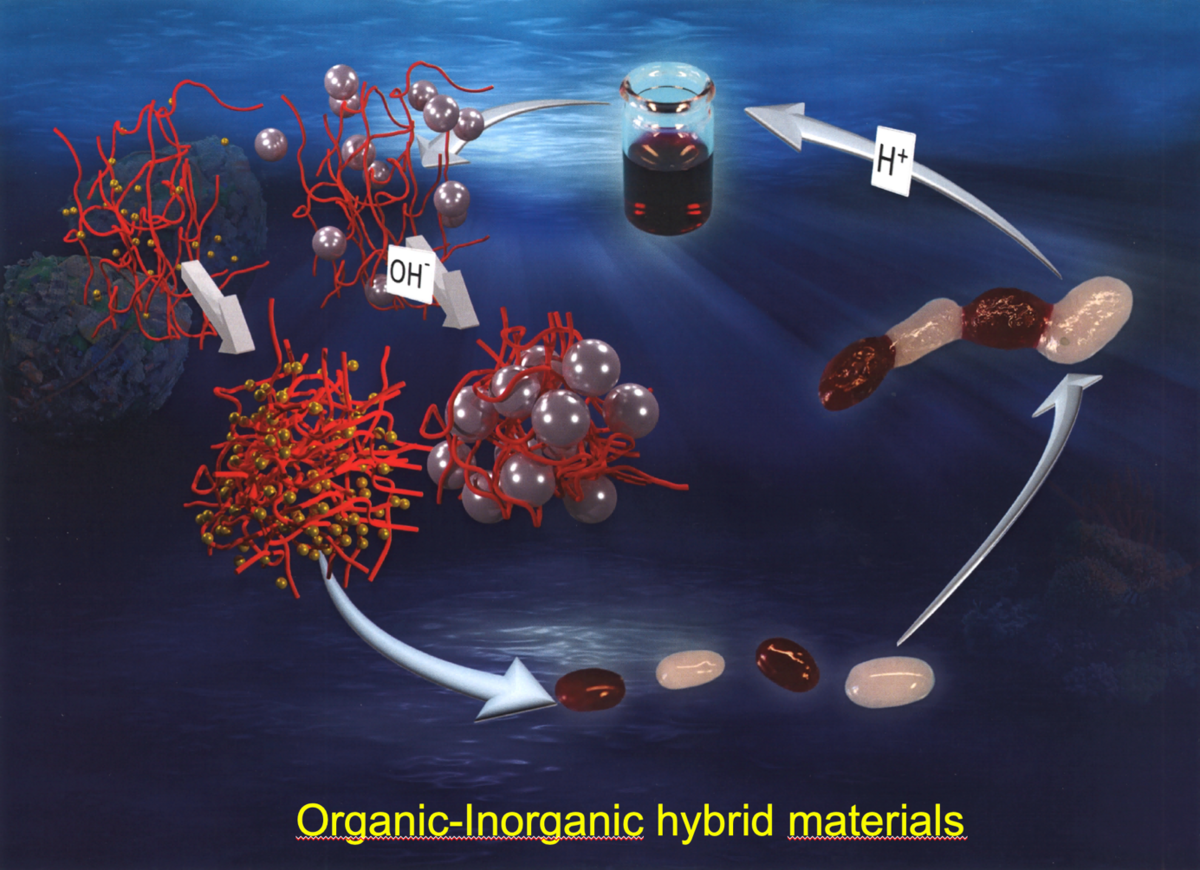Welcome to our Research
The research in our group is very broad and includes topics as diverse as the synthesis of functional polymers and nanoparticles or targeted design of materials for medical applications to method and detector development for Analytical Ultracentrifugation and Field Flow Fractionation. Many of our projects have their roots in the process of Biomineralization, where Nature shows, how materials with unsurpassed properties can be generated from components with rather poor physical properties in water under ambient conditions. We found, that many of the principles can be transferred to the design of synthetic materials even if they fulfill other tasks. Many bio-inspired materials have potential use in medical applications as bone implants or dental materials. Biomineralization also teaches sustainable and green chemistry principles, which we implement in many of our projects. In the associated group of Dr. Cristina Ruiz Agudo, we are active in the improvement of building materials like cement towards a green and sustainable future.
Together with the research group of Dr. Guillermo Gonzalez Rubio, we are also active in the synthesis of nanoparticles with defined size and shape and are interested in the morphogenesis mechanisms. Of special interest are multi-metallic nanoparticles, which are synthesized by a combination of colloidal wet chemistry and laser-induced heating. These nanoparticles are very promising catalysts and are tested for their capacity in water splitting or the generation of methanol and other organic compounds from water and carbon dioxide.
Also, the controlled self-assembly of nanoparticles to superstructures like mesocrystals is of continued interest.
On the analytical side, we are interested in fractionating methods of polymer and colloid analysis, namely Flow-Field Flow Fractionation and Analytical Ultracentrifugation. We develop optical detectors like multiwavelength UV-Vis or Raman detectors but are also interested in the development of the methodology for these techniques to broaden the application range to new applications. Even 100 years after its invention, Analytical Ultracentrifugation still has much to offer to solve problems of modern polymer and colloid chemistry.


The general research topics in this area include:
- Crystalline inorganic systems
- Crystalline organic systems
- Crystalline hybrid systems
- Nucleation mechanisms
- Non-classical crystallization
- Functional Polymers
- Sustainable Materials and Green Chemistry
Research Projects currently under investigation:
- Biodegradable mineral plastics
- Writing Crystals with Light
- Binary Prussian Blue Analogue Mesocrystals
- The design and synthesis of low-dimensional nanomaterials and hydroxides with intercalated anions
- From Biogenic to Advanced CaCO3 Materials
- Chemistry for cultural heritage preservation of porous stone materials
- Towards Monodispersity in Biomimetic Silica-Carbonate Microstructures
- Switchable Nanoparticle Superstructures
- Design of Polymeric Surface Ligands for the Controlled Growth and Assembly of Colloidal Nanocrystals
- Block copolymers for the dissolution of atherosclerotic plaques
- The degradation of calcium silicate hydrate (C-S-H) under aggressive media
- Construction of ultra-tough C-S-H composite towards elastic cementitious materials
- Towards sustainable cements: Understanding the crystallization of cementitious hydrates in LC3 blends as eco-friendly binder
- Formation mechanism of magnesium silicate hydrate (M-S-H) as an alternative cementitious binder

Nanoparticles:
In this area, nanoparticles with defined size, shape, and composition are synthesized to fulfill defined tasks. Especially multimetallic nanoparticles are the focus here in cooperation with Dr. Guillermo Gonzalez Rubio.
Research Projects currently under investigation:
- Synthesis and Characterization of Multielemental Colloidal Nanocrystals
- Method Development for the Synthesis of Multimetallic Heterostructures for Highly Efficient Electrocatalysis
- Controllable Synthesis of Pt-based multimetalic materials for electrocatalysis
- Controllable Growth of Multimetal Alloys and Their Electrocatalytic Properties

This research topic is dedicated to fractionating methods of polymer and colloid analysis. Flow-Field Flow Fractionation and Analytical Ultracentrifugation (AUC) are applied for the analysis of all kinds of disperse polymer and colloidal systems ranging from polymer solutions and nanoparticle dispersions via liquid crystalline systems to gels. The focus of our research is to develop new experimental methods, to determine physicochemical quantities, which are hardly or not accessible by other methods, and develop new optical detection systems with the final goal of a multidetector AUC capable of simultaneous determination of several complimentary physicochemical quantities or to utilize the power of this fractionating method for complex colloidal systems – also in a global analysis approach with other techniques like light scattering etc. In addition, we try to establish chemical reactions in the Analytical Ultracentrifuge to establish an entirely new research field spanning from nucleation to the formation of new chemical polymeric compounds. Also, we are very interested in the quantitative determination of interaction constants between nanoparticles to better control their self-organization into functional structures.
Research Projects currently under investigation:
- Chemical reactions in the analytical ultracentrifuge and global analysis
- Quantitative analysis of nanoparticle interactions and their distributions
- Raman detection in Field-Flow-Fractionation








